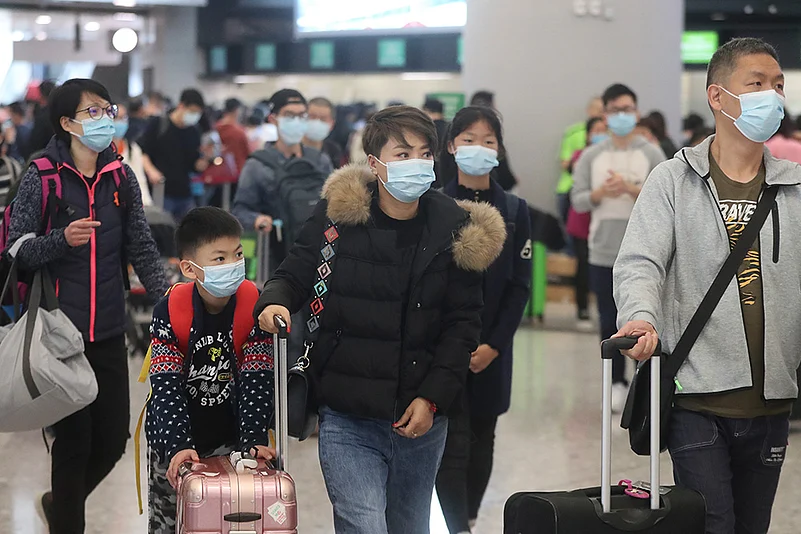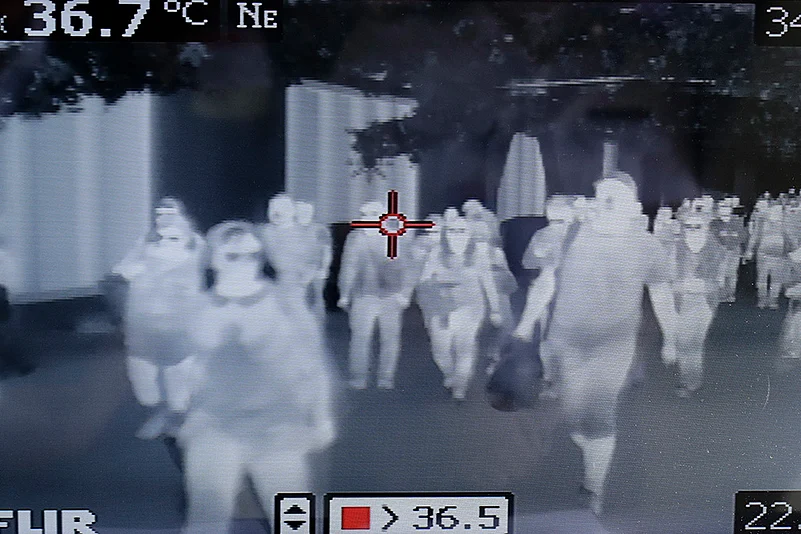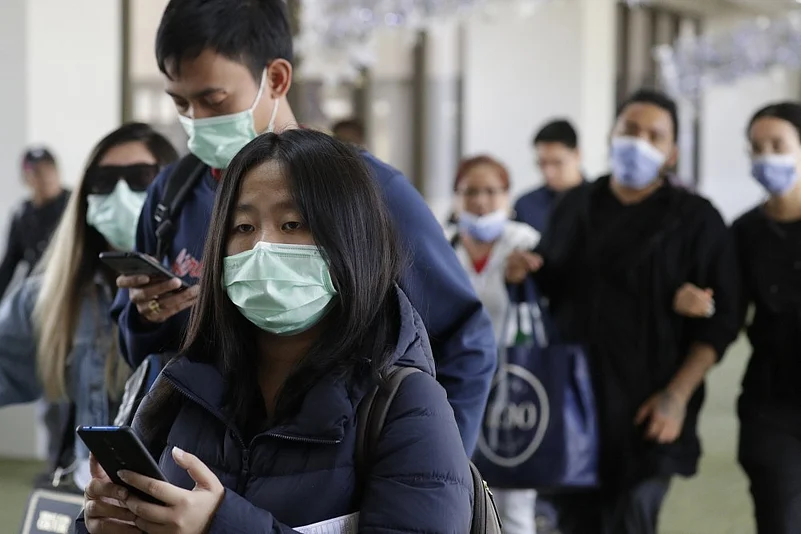A new flu-like virus known as the Coronavirus has infected more than 1200 people in China.
Even though the World Health Organization (WHO) said the disease did not yet constitute a global health emergency, the outbreak of the new virus has wreaked havoc in China and across the world.
The outbreak emerged in late December in Wuhan, an industrial and transport hub of 11 million people in China's centre, spreading to several other countries.
China has ordered nationwide measures to identify suspected cases of a deadly virus on trains, aeroplanes and buses. The country has put at least 18 cities with around 56 million people under lockdown.
Of the 1,287 confirmed cases as of Friday night, the condition of the 237 is stated to be critical, China’s National Health Commission announced on Saturday.
The virus has spread to Hong Kong, Macau, Taiwan, Nepal, Japan, Singapore, South Korea, Thailand, Vietnam and the United States as of Thursday. Japan on Friday reported a second confirmed case.
Airports across the world, including in the US, South Korea, Indonesia, and India have started health screening of people arriving from China. Designated airports in India, comprising those in Delhi, Mumbai, Kolkata and Chennai, will screen travellers from China with a thermal detector.

What are the symptoms caused by the China virus and when should you see a doctor?
What Is The New Coronavirus?
Coronaviruses (CoV) are a large family of viruses transmitted from animals to humans and cause illness ranging from the common cold to more severe diseases such as Middle East Respiratory Syndrome (MERS-CoV) and Severe Acute Respiratory Syndrome (SARS-CoV), according to the World Health Organisation (WHO). The recent one, known as 2019-novel coronavirus (nCoV), is a new strain that has not been previously identified in humans.
On 31 December 2019, the WHO China Country Office was informed of cases of pneumonia of unknown cause detected in Wuhan City, Hubei Province of China. Chinese scientists identified a novel coronavirus (2019-nCoV) on January 7 as the reason behind the disease. According to the Chinese government, the virus was transmitted from the meat of wild animals sold illegally at a market in Wuhan.
How Does It Spread?
The coronaviruses are generally air-borne and can be transmitted by exposure to a sick person's saliva, sneeze, or by shaking hands with him/her. It can also be contracted by touching surfaces that have traces of virus and afterwards touching your own nose, eyes or mouth.
Those visiting China are advised to avoid travel to farms, live animal markets or where animals are slaughtered, and refrain consuming "raw or undercooked meat".
However, not enough is yet known about the new coronavirus to draw definitive conclusions about how it is transmitted and clinical features of the disease. Nonetheless, some guidance in terms of detection of sick persons has been given by the WHO.
The guidance says a person should be put under observation for nCoV infection when severe acute respiratory infection (SARI) in him/her, with history of fever and cough requiring admission to hospital, can't be explained by a certain cause. Additionally, if the sick person has a history of travel to or a person who lived in Wuhan in the 14 days prior to symptom onset or close physical contact with a confirmed case of nCoV, they may have contracted the disease.
What Are The Symptoms?
The symptoms for the deadly viral disease include headache, runny nose, cough, sore throat, fever, sneezing, fatigue and other such traits of a common cold. But it can also show symptoms like exacerbated asthma, pneumonia and bronchitis.
However, all the clinical features of the disease are not determined yet.
How To Combat Coronavirus?
Preventive measures have been charted out by experts and authorities to help people stay safe. These include observing personal hygiene such as regularly washing hands, and avoiding close contact with people showing symptoms of illness, especially of having cold.
People in and travelling to China have been advised to avoid visiting farms, live animal markets or slaughterhouses since the virus is linked to animals.

A thermal scanner checks on arriving passengers at Manila's international airport, Philippines (AP Photo)
New Hospital In Wuhan
China has begun building a 1,000-bed hospital in Wuhan which is expected to be completed in less than ten days.
Dozens of excavators were feverishly working at the site where the hospital is being built on a 25,000-sq metre plot in just about 10 days. It will be ready by February 3, state-run Xinhua news agency reported.
Workers are being paid 1,200 Yuan (USD 173) per day, three times their usual wage, to accelerate the construction.
The hospital will be modelled on the one built in Beijing for the treatment and control of SARS or Severe Acute Respiratory Syndrome, that spread rapidly on the Chinese mainland in 2003, killing over 800 people. Beijing then had built the Xiaotangshan Hospital, a temporary medical centre in the northern suburb of the city.

Workers walk past heavy equipment at a construction site for a field hospital in Wuhan in central China's Hubei Province (AP Photo)
Cases In India
Coronavirus has triggered a cause of concern for India too as many of the 700 odd Indian students studying in universities of Wuhan and Hubei provinces are still stuck up there. The Indian Embassy has established hotlines to keep close contact with them.
Eleven people--seven in Kerala, two in Mumbai and one each in Bengaluru and Hyderabad--who are among hundreds of passengers who returned from China in the recent days are under observation in hospitals to check for possible exposure to the deadly novel coronavirus.
The Union Health ministry said of these 11 people, two persons who were kept under observation at a Mumbai hospital and one person each under watch in Hyderabad and Bengaluru have tested negative.
In Kerala, officials said, another 73 people were being kept under medical surveillance at their homes in the state.
Should We Be Worried?
No. The spread of the virus outside China is worrying but not an unexpected development.
The WHO has announced that it was "too early" to declare the outbreak of the novel coronavirus a public health emergency of international concern (PHEIC), while warning that the number of cases may increase as much about the virus remains unknown.
For the moment, the WHO does not recommend any broader restrictions on travel or trade, and recommends exit screening at airports as part of a comprehensive set of containment measures.
(With inputs from agencies)


























